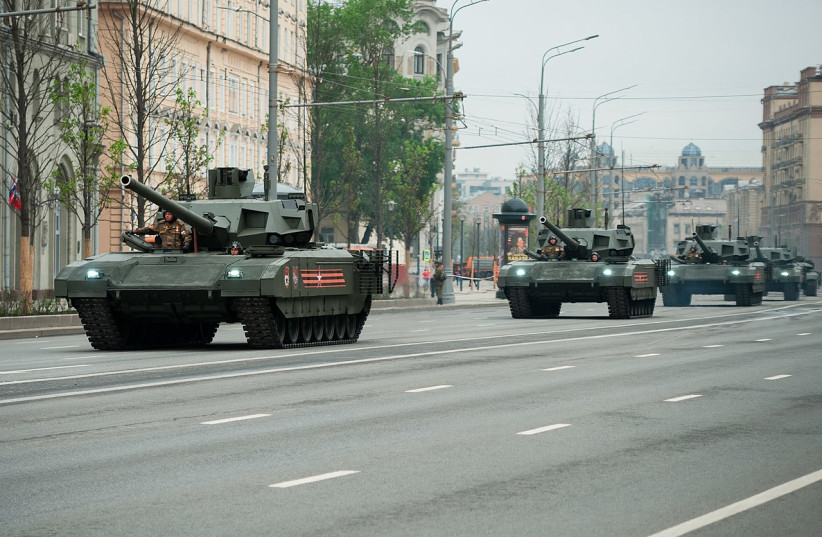Russia is struggling to produce more tanks for its military due to crippling financial sanctions and import restrictions imposed on Moscow due to the invasion of Ukraine, the Ukrainian Intelligence Directorate (GUR) claimed on Friday.
The Russian firm UralVagonZavod, located in Nizhny Tagil in the Sverdlovsk Oblast, is the world's largest main battle tank manufacturer and has a long history dating back to Josef Stalin's second five-year plan. Since then, it continues to produce tanks, such as the T-90, T-72 and T-14 Armata.
Despite having revenue in the billions of dollars, sanctions have crippled the company's ability to produce tanks. This is due to rising interest rates on loans, lack of funds for foreign currency loans and rising material prices, including for steel.
According to the GUR, production of T-72s has significantly slowed while production of T-90s and T-14 Armatas has completely stopped.
This latter stoppage is particularly significant, as the T-14 Armatas are Russia's next-generation tank and were expected to begin serial production and delivery this year, according to TASS. This tank also sparked concerns among the West due to its technological advances, such as heavier armor; unmanned turret; touchscreen controls and built-in instant messaging system linked to other T-14 Armatas and newer T-90 models; and software aimed to cover Russian tanks' traditional weakness of night fighting by autonomously tracking several targets.

According to a 2016 report by Business Insider, NATO commanders feared it could jeopardize their standing in Eastern Europe and threaten the security of the Baltics. It even inspired Germany and France to work together to develop a new main ground combat system to combat the advanced T-14 Armata.
This struggle also further compounds the losses Russia has suffered in its invasion of Ukraine, which has seen them lose 773 tanks so far, according to the Ukrainian military.
Reports of Russia struggling with production issues due to sanctions is not new since the invasion of Ukraine began on February 24.
Earlier in April, the GUR reported that some Russian shipyards are unable to construct warships or conduct maintenance on vessels due to financial hardships and a lack of foreign components.
In particular, a Vladivostok shipyard was allegedly unable to meet 25 billion rubles worth of government orders to build two tankers, two missile boasts, and to maintain and repair other vessels.
"It is obvious that the Russian military-industrial complex remains dependent on imported high technologies," wrote GUR at the time "Without the supply of which Russia is unable to continue production of modern weapons."
Despite these setbacks, however, Russia by far still has a massive army with considerable supplies of vehicles, with a 2021 Global Firepower annual ranking pointing at them having the largest number of tanks in the world by far.
Further, a recent Russian Defense Ministry report claims that Russian troops are actually capturing Ukrainian tanks and restoring them to fighting condition.
Michael Starr contributed to this report.
